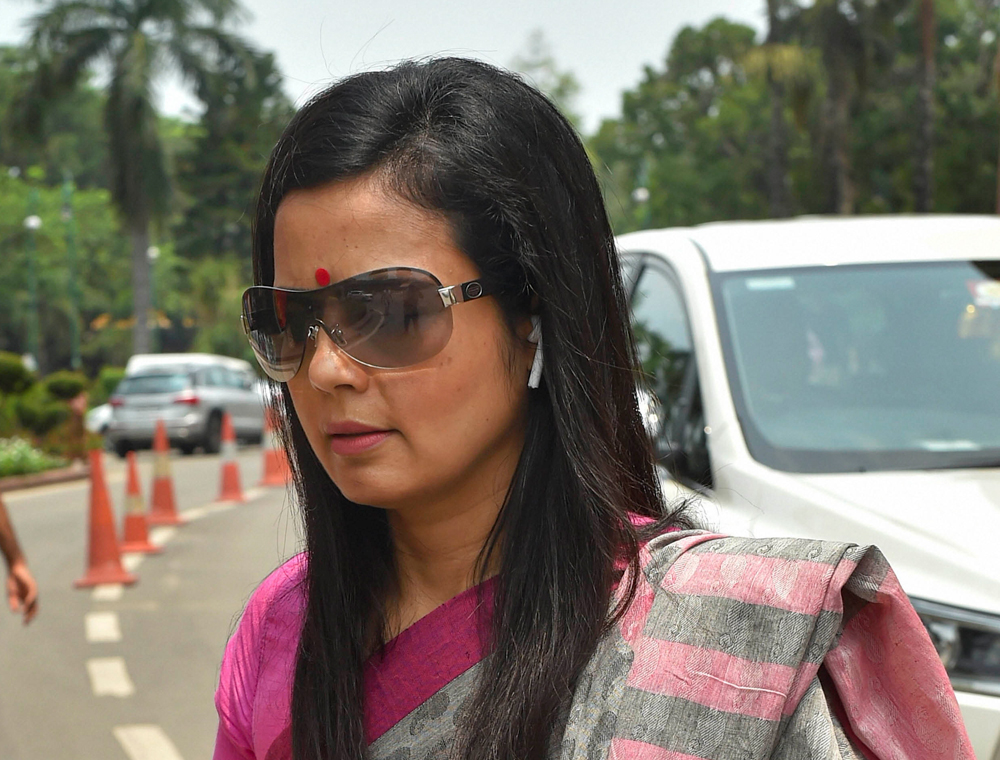Trinamul Congress MP Mahua Moitra moved the Supreme Court on Friday challenging the amended Citizenship Act, according to which members of non-Muslim communities from Pakistan, Bangladesh and Afghanistan facing religious persecution there will be given Indian citizenship.
Moitra's counsel mentioned the matter for urgent listing before a bench headed by Chief Justice of India S. A. Bobde, who asked him to approach the mentioning officer. The counsel told the bench that the plea be listed either during the day or on December 16.
President Ram Nath Kovind had given his assent to the Citizenship (Amendment) Bill, 2019, on Thursday night, turning it into an Act.
According to it, members of Hindu, Sikh, Buddhist, Jain, Parsi and Christian communities, who have come from Pakistan, Bangladesh and Afghanistan till December 31, 2014, and facing religious persecution there, will not be treated as illegal immigrants but given Indian citizenship.
On Thursday, another plea challenging the act was passed by Indian Union Muslim League (IUML), saying it violates the fundamental right to equality of the Constitution and intends to grant citizenship to a section of illegal immigrants by making an exclusion on the basis of religion.
The petition alleged that the legislation was against the basic structure of the Constitution and intended to explicitly discriminate against Muslims as it extends benefits only to Hindus, Sikhs, Buddhists, Jains, Parsis and Christians.
'The petitioners do not have any grievances in granting citizenship to migrants but the petitioner's grievances is directed against discrimination and unreasonable classification based on religion. It is submitted that illegal migrants are class by itself and therefore any law which is applicable to them should be irrespective of any religion, cast or nationality basis,' the plea had said.
It also alleged that the government has given no explanation on the act excluding minorities like Ahmadiyyas, Shias and the Hazaras who have a long history of persecution in Afghanistan and Pakistan.
'The act does not prescribe any standard principle or norm behind choosing aforesaid three neighbouring countries, whereby it does not extend the benefit to religious minorities belonging to other neighbouring counties such as Sri Lanka, Myanmar, Nepal and Bhutan.
'The classification of Afghanistan, Pakistan and Bangladesh is not founded on rationale principle to justify a separate special treatment for the religious minorities facing persecution on the basis of religion,' the petition had said.
It said that the act will ensure that illegal Muslim migrants excluded after the NRC exercise be prosecuted and, those belonging to the community of Hindus, Sikhs, Buddhists, Jains, Parsis and Christians shall be given the benefit of naturalisation as an Indian citizen.
'Therefore all those Muslims who have been excluded in such pan-India NRC exercise shall have to prove their citizenship before the foreigners tribunal, all because they are Muslims and not Hindus, Sikhs, Buddhists, Jains, Parsis and Christians,' the plea had said.
'This blatant discrimination put into legislation by the amended act is not only unconstitutional but also inhumane and opposed to the very idea of our nation,' it had said.











